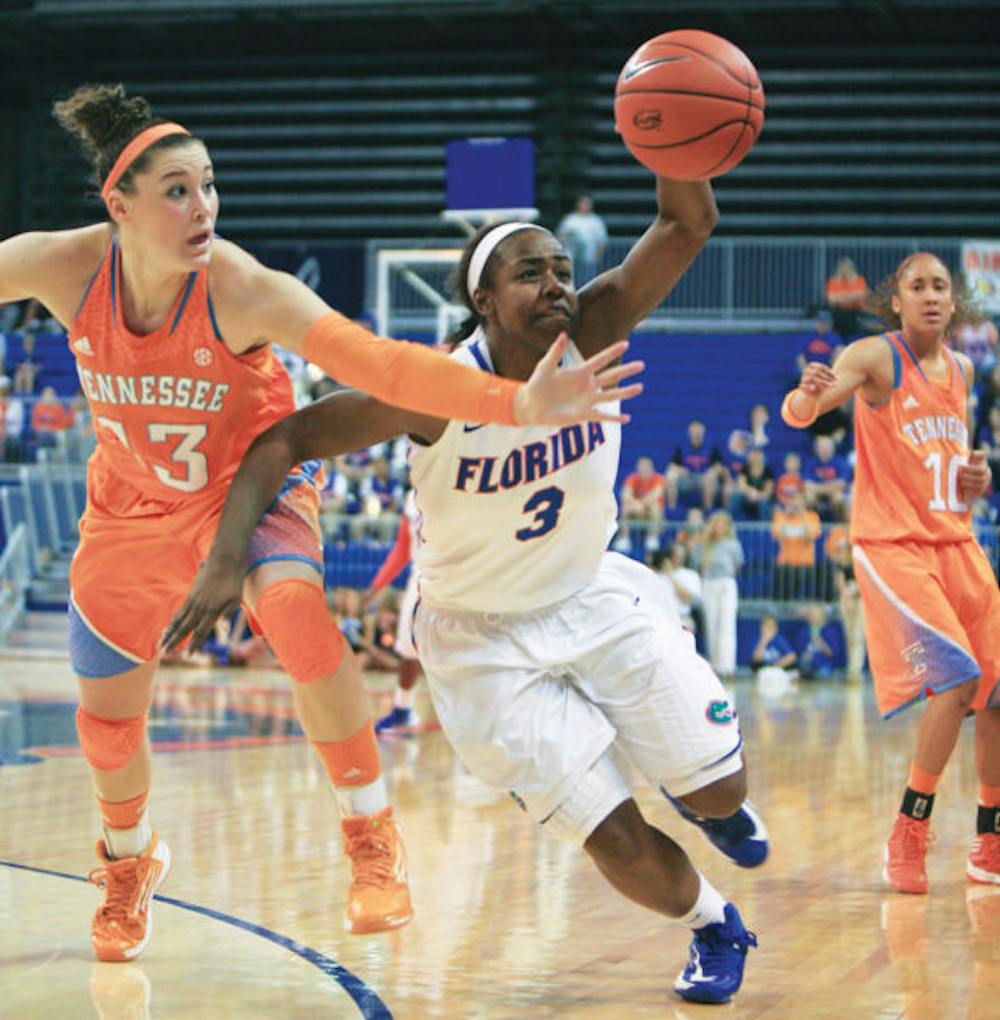Florida’s 78-75 overtime loss to No. 9 Tennessee was a wasted opportunity.
The Gators missed out on their biggest win since, well, the last time they beat the Volunteers — in 2009.
On a campus where the women’s basketball program struggles to gain relevance and attention, a win against Tennessee would have meant the world.
Overcoming a nine-point deficit in the second half was not enough. Neither was pushing a Top-10 juggernaut into overtime.
Despite playing arguably its best game of the season, UF still lost.
Folks enjoyed playing “what if” for a couple of hours. Once the final buzzer sounded, they stopped caring. It was fun while it lasted.
Sunday’s crowd of 2,609 was an anomaly.
Florida’s 10 home games this season have averaged 1,055 spectators, which ranks next to last in the Southeastern Conference.
By five fans.
The spotlight came and went.
The Gators never had a chance to win. The Volunteers are just too good.
Should facing just another SEC opponent be so daunting? No.
Should Florida celebrate a moral victory after losing a close game to Tennessee? Hell, no.
But in their current state, the Gators are stuck playing catch-up. It’s hard to lead the pack with lackluster support.
In 2011, Florida’s expenses for women’s basketball numbered $3,018,356, which ranked 29th nationally. Tennessee led the nation with expenses totaling $5,892,060.
Logically speaking, the gap between the Gators and the Volunteers is not alarming. After all, the UT women’s basketball program is a winning machine built by Pat Summitt, the greatest college basketball coach ever (Yeah, I said it. What are you going to do about it?).
Meanwhile, women’s basketball is the only sport at UF that has not won a conference championship.
However, the main cause for concern is that Florida ranked ninth in women’s basketball expenses among SEC teams in 2011. Tennessee, Vanderbilt, Texas A&M, Auburn, Arkansas, LSU, Georgia and Kentucky all spend more than UF.
This is not a cry for the University Athletic Association to pour more money into women’s basketball, but what Florida puts into the team speaks volumes. How much does the administration care about the sport?
When the Gators earned a bid in the 2011 Women’s National Invitation Tournament, they played Florida Gulf Coast in Fort Myers. In a tournament where homecourt advantage is earned through a bidding process, how in the world did FGCU outspend UF?
Seems ludicrous, right?
Apathy is the most reasonable conclusion.
Given Florida’s resources and its all-around success in sports, the futility of the women’s basketball program should be embarrassing. However, despite whatever the administration’s attitude toward the women’s basketball program may be, UF should still be better.
Butler is the fastest coach to win 100 games in program history, but does reaching the NCAA Tournament twice in five seasons really warrant a contract extension?
Butler’s predecessor, Carolyn Peck, was fired after leading the Gators to The Big Dance twice in five seasons. Why was Butler rewarded for producing nearly the same resume?
Anything other than March Madness should be considered a failure at UF. And no, the WNIT does not count as March Madness, so don’t use that to champion Butler’s cause.
Other small sports are winning SEC and national championships, and Butler received an extension for sneaking into last season’s NCAA Tournament despite winning just four games against teams in the RPI Top 50.
Florida’s loss to Tennessee was painful, and there are multiple parties at fault.
But as long as UF treats women’s basketball as an afterthought and accepts middling results, the Gators will just have to be satisfied with coming close.
Contact Joe Morgan at joemorgan@alligator.org.
Guard January Miller (3) fights for possession with guard Taber Spani (13) during Florida’s 78-75 overtime loss to Tennessee on Sunday in the O’Connell Center.






